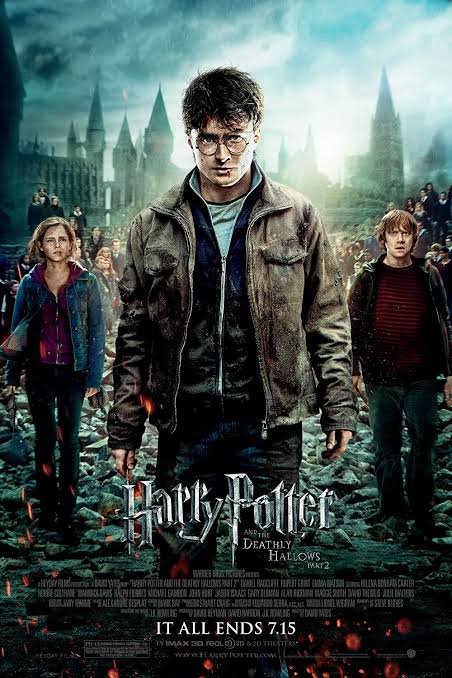Harry Potter. Not such a good school experience
The Harry Potter movies may be entertaining and beloved by many, but they are also the antithesis of a positive school experience. Here are several reasons why:
First and foremost, the movies present an extremely dangerous and violent school environment. Hogwarts School of Witchcraft and Wizardry is constantly under threat from dark wizards and magical creatures, and students are often put in harm's way. In the movies, we see students facing life-threatening situations on a regular basis, such as battling giant spiders, escaping from a deadly maze, and facing off against evil wizards. This is hardly a positive school experience, as students should feel safe and secure in their learning environment.
Furthermore, the movies portray a highly competitive and exclusionary school culture. Throughout the series, we see students constantly vying for top marks, competing for coveted positions on the Quidditch team, and seeking to be recognized by their teachers and peers. While healthy competition can be a good thing, the culture of competition at Hogwarts often leads to feelings of envy, jealousy, and bitterness among students. This is not the kind of positive environment that fosters learning and growth.
The Harry Potter movies also promote a rigid and hierarchical system of power within the school. Students are sorted into different houses based on their personality traits, with Gryffindor house being the most revered and respected. This creates a clear hierarchy of power within the school, with some students being viewed as more important or valuable than others. This can lead to feelings of exclusion and inadequacy among students who are not in the "right" house, and it reinforces harmful societal attitudes about social status and privilege.
In addition to these issues, the Harry Potter movies also fail to present a realistic portrayal of the academic experience. While we do see some classes and exams taking place, the focus is often on the fantastical and magical elements of the story, rather than on the actual learning that is taking place. This can create unrealistic expectations among viewers about what school is really like, and it can also downplay the importance of academic achievement and hard work.
Finally, the Harry Potter movies perpetuate harmful stereotypes and biases, particularly with regard to gender and race. Female characters are often relegated to supporting roles, and their intelligence and abilities are often overshadowed by male characters. Similarly, characters of color are often relegated to minor roles or stereotypes, and their experiences and perspectives are often overlooked or minimized. This reinforces harmful societal attitudes about gender and race, and it can contribute to feelings of exclusion and marginalization among viewers who do not fit these narrow stereotypes.
While the Harry Potter movies may be entertaining and enjoyable to watch, they are the antithesis of a positive school experience. They promote a dangerous and violent school environment, a culture of competition and exclusion, a rigid and hierarchical power structure, an unrealistic portrayal of academic achievement, and harmful stereotypes and biases. These issues can have a negative impact on viewers, particularly young people, who may internalize these messages and attitudes about school and society. It is important to critically examine media representations of education and to strive for more positive and inclusive portrayals of school experiences.
